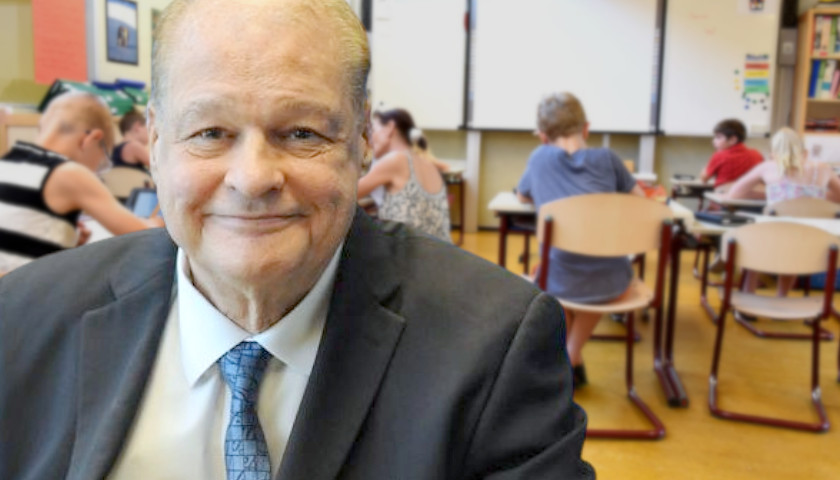Arizona Superintendent of Public Instruction Tom Horne (R) released a statement Tuesday, blasting the practice of “equitable grading” that he claims is helping to create a lazy student body.
“In education today, we have a war between excellence and mediocrity. So-called ‘equitable,’ ‘compassionate,’ or ‘standards-based’ grading promotes mediocrity. Test scores show that the students are not learning enough to properly compete in an internationally competitive economy,” Horne (pictured above) said. “If we are to increase learning and show it in increased test scores, students must do homework and be graded objectively. The parents of the state are demanding this result.”
According to Harvard University, equitable grading aims to give students grades that reflect their understanding of a subject, not based on behavioral performances or teacher biases. Joe Feldman, the man behind the idea, gave the example of two students turning in an essay. One student submitted an A-quality paper late and received a B for a final grade; meanwhile, another student submitted a B-quality paper on time and got the same grade as the first student, even though one report was of a higher quality than the other.
Equitable grading may take different forms but can involve deemphasizing due dates for assignments, allowing redoes on tests, and grading using a baseline percentage.
As reported by The Wall Street Journal, many schools around the nation have implemented some equitable grading. Proponents say it is aimed at helping students who don’t have a stable home life or have to work starting at a young age to support their families. However, on implementation, the principle presents issues. Laura Jeanne Penrod, a high-school English teacher in Las Vegas, said her school started deemphasizing homework, and students took advantage of that.
“They’re relying on children having intrinsic motivation, and that is the furthest thing from the truth for this age group,” said Penrod.
Additionally, another Las Vegas teacher, Alyson Henderson, said this kind of grading sends students a flawed message. In the real world, jobs do not allow employees to pick and choose what tasks they want to complete with minimal pushback; however, Henderson said this is the exact “false sense of reality” given to students.
In Arizona, Horne said some schools demonstrate equitable grading by providing a baseline percentage for some assignments. For example, rather than starting a grade at zero, it begins at 50 percent; therefore, if students submit homework worth 20 percent, they will earn 70. Horne said this approach incentivizes students to be lazy rather than pushing them to achieve success.
According to the Arizona Department of Education (ADE), several schools are using an equitable grading system, which includes: Agua Fria Union HSD, Amphitheater USD, Deer Valley USD, Flagstaff USD, Laveen ESD, Liberty Arts Academy, Phoenix Union HSD, Roosevelt ESD, Santa Cruz Valley USD, and Sunnyside USD.
However, an ADE spokesperson told The Arizona Sun Times over the phone that this list is not comprehensive, and there may be more schools in the state like these.
Yet, Horne said that, as of now, these schools do not need to worry about any disciplinary action from the department.
“That is not something that is on the agenda right now. I’m just calling attention to it,” Horne told The Sun Times over the phone.
However, Horne said that if parents are concerned about equitable grading in their children’s schools, they should talk to the institutions about it.
– – –
Neil Jones is a reporter for The Arizona Sun Times and The Star News Network. Follow Neil on Twitter. Email tips to [email protected].
Photo “Tom Horne” by Tom Horne.








